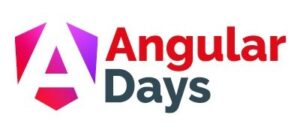3D im Web mit Babylon.js – Ihre Web-App in Szene gesetzt
Moderne Businessanwendungen und Web-Apps sind längst nicht mehr langweilig. In vielen Bereichen spielen UX und UI heute eine prägende Rolle. Es reicht oft nicht mehr aus, Daten einfach nur klassisch anzuzeigen, sie wollen ansprechend visualisiert werden - in 2D, 3D, Virtual Reality (VR) oder Augmented Reality (AR). State-Oft-The-Art 3D-Engines für das Web ermöglichen uns Entwicklern, komplexe Daten in einer ansprechenden und verständlichen Weise zu präsentieren: Cross-Plattform und gänzlich ohne Installationsprozess.
Mit dem gleichen Technologie-Stack erstellt wie die Web-App, greifen die verschiedenen Bestandteile reibungslos ineinander und unterstützen sich gegenseitig.
In diesem Workshop zeigt Max Schulte wie Sie eine 3D-Engine nutzen und in Ihre Businessanwendung integrieren können. Anhand einer beispielhaften Integration in eine Angular Single Page Application (SPA) lernen Sie die Grundlagen, um Ihre Anwendung mit neuen Visualisierungen in Szene zu setzen.
Event

Links & Materialien
Event

Weitere Artikel zu aktuellen Schwerpunkten


Advanced Value Object Patterns in .NET


Discriminated Unions in .NET: Modeling States and Variants


Smart Enums in .NET: Integration with Frameworks and Libraries


Value Objects in .NET: Enhancing Business Semantics


Pattern Matching with Discriminated Unions in .NET


